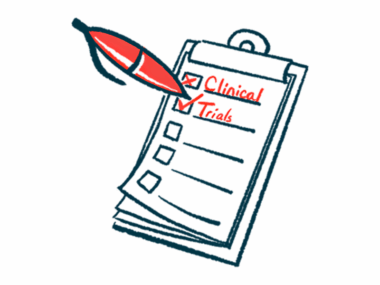Parkinson’s Disease Remission: Can the Conductor Help?
Written by |

In previous columns, I have discussed using the conductor (in particular, the resting mind state) to suppress faulty input from the second dopamine center, thus reducing the effects of Parkinson’s symptoms. Is there any evidence to support this besides my ramblings?
The first piece of evidence is my own life with Parkinson’s. We know there are dangers in applying medical scientific information to self-awareness. I would not recommend self-application without a strong conductor. Even then, one should be willing to have peer review. I present myself as a case of atypical non-tremor Parkinson’s, while at the same time having this unique life history that stimulated my brain to utilizing the conductor. Because the second dopamine center is broken, it occasionally sends me misinformation. A strong conductor helps me shift perspective and see the illusion being presented.
The conductor and exercise training provided throughout my life have enabled me to shift perspective, to look at things differently. They have been a part of seeking creative solutions and healing. That ability to shift perspective, combined with the training, has led me to share my story of possibilities with Parkinson’s.
I am not the only case to show improvement with Parkinson’s (or at least a slower-than-normal decline). Medical literature reports a man who had Parkinson’s, then didn’t. Is this an example of Parkinson’s remission? The authors of the study believe the man’s meditation practice was one contributing factor to this change. I see meditation as a shift in perception through the resting mind state and a role of the conductor.
In her book “Radical Remission,” Dr. Kelly Turner describes themes common throughout interviews with people who experienced radical remissions from cancer. Of the nine themes she identifies, seven involve a shift in perception, e.g., taking charge of your health and discovering a deeper meaning or purpose. The brain can influence the body, as in the relaxation response used for addressing stress and the use of mindfulness. It may be that shifting perspective can benefit people who have Parkinson’s.
When done with the proper intent over time, shifts in perspective may aid in the healing process. My research on advanced empathy describes a catharsis and a shift in perspective as part of what transpires within the healing relationship. The role of the conductor is to help with shifts in perspective. My previous “A Fresh Look” columns offer several examples of using a shift in perspective to help with Parkinson’s.
Conductor and exercise training don’t have to be something special. They can be molded around almost any activity in daily life. One of the easiest ways to practice is being creative in something you like to do. Creativity here is defined as producing something that did not exist before, rather than reproducing what you created earlier. It may be that engaging in creative and new tasks daily will strengthen the conductor because such mental efforts require a shift in perspective.
I have found that there is a symbiotic relationship between exercise and conductor training when it comes to managing my Parkinson’s symptoms. Symbiotic training is more than one approach alone. It provides the healthy muscles needed to benefit from the conductor training. The body strengthens and the conductor strengthens. Exercise helps the brain get ready to heal. The two working in harmony provide more energy in the well of resources I draw from to get through each day. There are fewer severe “off” periods. Together, exercise and conductor training provide input into improved functioning and a reward feedback loop. That is the symbiotic relationship.
What I present here is not proof that conductor and exercise training always work to help people who have Parkinson’s. A single case study, even with scientific support, cannot translate easily to a large population. This is an idea, a story of one man’s life with Parkinson’s, and how he has made sense of things. I share what I do to offset the worst of what Parkinson’s throws at me. Only the future will tell if my story has utility. What I do offer is possibility, and that can be the foot in the door helping to keep hope alive.
***
Note: Parkinson’s News Today is strictly a news and information website about the disease. It does not provide medical advice, diagnosis or treatment. This content is not intended to be a substitute for professional medical advice, diagnosis, or treatment. Always seek the advice of your physician or another qualified health provider with any questions you may have regarding a medical condition. Never disregard professional medical advice or delay in seeking it because of something you have read on this website. The opinions expressed in this column are not those of Parkinson’s News Today or its parent company, Bionews, and are intended to spark discussion about issues pertaining to Parkinson’s disease.






Derek C. Marshall
Possibility is always good...
Pramesh Ratnakar
I have also used the 'Conductor' to tackle PD, and it works.
Except that my term for it is " the Experiencer".
While doing all that I do to fight PD (on levadopa now for 8 years)- exercising/meditating/singing/dancing/playing - I have trained myself to deliberately, willfully but consistently take a quiet step back, and focus on experiencing the "Experiencer".
Good things happen then. Some of them I have captured in Videos. Would love to share.
Dr. Pramesh Ratnakar
(Professor- English
University of Delhi
India)
Still teaching. And enjoying it.
Good things happen then.
Dr. Pramesh Ratnakar
Proffessor - English
(not retired. Still teaching. And enjoying it)
Dr. C
Hi Dr. Ratnakar ~ I am pleased that you equate the "Experiencer" with my term the "conductor". I think we might be describing the same process -- I would like to know more about how you define the "Experiencer". I see the conductor as the observer of experience. I'm glad you are still engaged in teaching.
Dr. C.
Pramesh Ratnakar
Dr C hope you received my second message.
I have tried to articulate my attitude to PD in various videos, talks, lectures etc. Some of them can be accessed easily, if you Google "Pramesh Ratnakar Parkinson's ".
Best wishes
Pramesh Ratnakar
Al Zapata
Is there merit to the theory that Parkinson's is vascular related. Blood supply to brain cells that produce Dopamine begin to slowly become reduced and brain cells do not get adequate blood supply and become dormant. restoring blood supply similar to what is done to a heart damaged by a heart attack. A protein is injected into the damaged heart tissue which stimulates the growth of new capillaries which increases blood supply and awakens dormant brain cells
Dr. C
Hi Al ~ Nutrient supply for the health and wellbeing of neurons is definitely important. I falls outside my realm of expertise in brain rehabilitation counseling. I would be interested if you could supply some scientific research citations that address your question of vascular-related effects on Parkinson's.
Thank you for reading my columns and I appreciate your taking the time to comment.
Dr. C.
Pramesh Ratnakar
I am sorry for the delay in response. I saw this post just the other day. I have talked about my engagement with PD in videos and podcasts.
I am not being able to upload links, but if you google, 'Pramesh Ratnakar Parkinson's' you will access some of them.Do have a look.
Would to compare notes.
Dr. C
Hi Pramesh ~ Life has been on a roller-coaster with us getting the final manuscript out to the publisher. We are pursuing the publication of the columns in a book: "Possibilities with Parkinson’s: A Fresh Look and Collection of Essays on the Journey of Discovery". Our intent is that (being readers of books ourselves) it might be easier to have someone pick up a book, and be able to refer back to a previous essay or train of thought. Our publisher, Atmosphere Press, has the manuscript now for final editorial review. He is projecting a publish date this summer.
It would be easiest for me if you could send your thoughts in writing to [email protected] I can then review your ideas and form questions to begin a dialog where we "share notes". I look forward to reading your ideas.
I appreciate your comment and hope that you keep checking in on my columns and BioNews Today.
Dr. C.